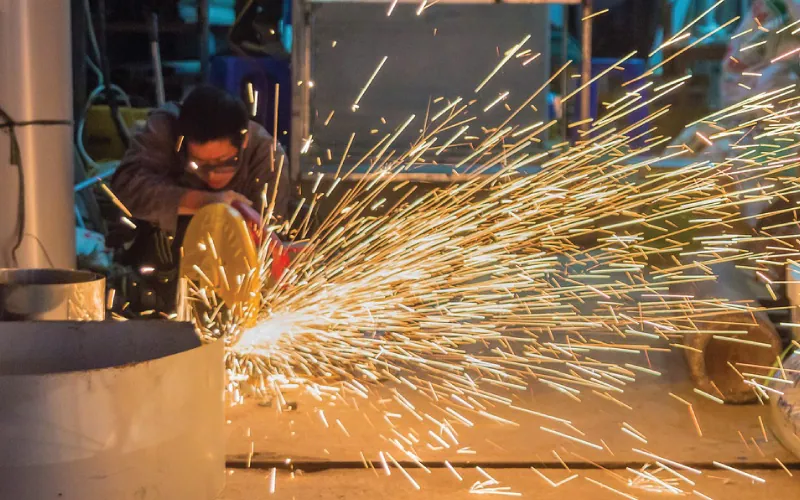Industrial plants face many challenges when it comes to indoor air quality, specifically when considering fresh air volume, temperature, humidity and particle concentration. In this article we examine the challenges of the Industry and explore how evaporative cooling can be the right solution.
Indoor air quality is an important issue from both a social and economic point of view, people are becoming more aware of what they breath and quality of the air around them. Indoor air quality (IAQ) refers to the quality of the air that affects the health and wellbeing of the individuals occupying a particular space. We can consider two essential aspects related to IAQ: indoor air pollution and human comfort.
It is well reported that outdoor air pollution is harmful to human health, but we generally pay less attention to the potential health impact of indoor air pollution. Indoor pollutants, those generated inside a building, tend to be because of activities such as cooking, moulding, heating, use of cleaning products or air fresheners.
Working conditions in production plants can be extremely challenging at all times of the year but in the summertime, these challenges are heightened. High temperatures in factories and warehouses can affect workers and decrease their productivity. In very hot environments, the most serious health and safety concern is heat stroke. Heat stroke can be fatal if medical attention is not available immediately. Heat exhaustion and fainting (syncope) are also types of heat related illnesses which are not fatal but can interfere with a person’s ability to work.
NASA studies show that human productivity falls 3.6% for every degree above 22°C and 4.7% over 30°C. Other studies carried out by the British Industrial Fatigue Board found that there was a lower output in hot/heavy industries in summer than in winter and an increase in accidents when air temperatures rose above 20°C. While there is no legal requirement for environments to be sustained within a temperature threshold, employers recognise that maintaining the temperature at a comfortable level will not only ensure their employees are healthier and happier, but consequently more productive – ultimately making them more profitable!
A good solution to improve indoor air quality can be found in evaporative cooling solutions. Drawing fresh air from the outside, evaporative coolers offer great advantages, such as cleaner air over refrigerated air conditioning.
Traditional air conditioning units, which remain within a building and rely on doors and windows to be kept closed to ensure they work effectively, recirculate the same stale air over and over. In the case of food production, where pollutants are being created alongside, germs and fumes, traditional air conditioning is exacerbating the indoor air pollution problem further.
Breezair (Seeley International’s evaporative cooler) works the simple principles of evaporation where hot outside air is pumped through water-soaked pads. As the air blows through the pads, the water is evaporated and the heat in the air is absorbed, which lowers the air temperature. A fan then pushes the cool air through a ducting system, which then lets the cool air inside the whole building. Evaporative coolers only use water and electricity to work, thus resulting in a significant saving in running costs. Doors and windows must be left open (or an extraction system installed) to exhaust indoor air, that collects heat, moisture and impurities.
Outside air often contain dust and pollen: Breezair filters the incoming air, removing most airborne dust and pollen particles. The wet cooling pads trap most of these particles, which are washed down into the sump by the circulating water.
Some specific productions can be affected by humidity, particularly warehouses that store perishable food products. Due to their size, often large with high ceilings, humidity can have a detrimental impact on the health of workers, the quality of the perishable products- again, potentially hitting a company’s bottom line. In all these cases, evaporative cooling can be the best solution. For example, with our Breezair system you can take control of the internal humidity levels, setting a certain maximum relative humidity temperature above which the cooler work in ventilation mode, still providing fresh air from the outside, but without adding any additional moisture. Controlling humidity provides us with a more healthy, comfortable environment and helps control static electricity as well and other humidity-sensitive processes.

